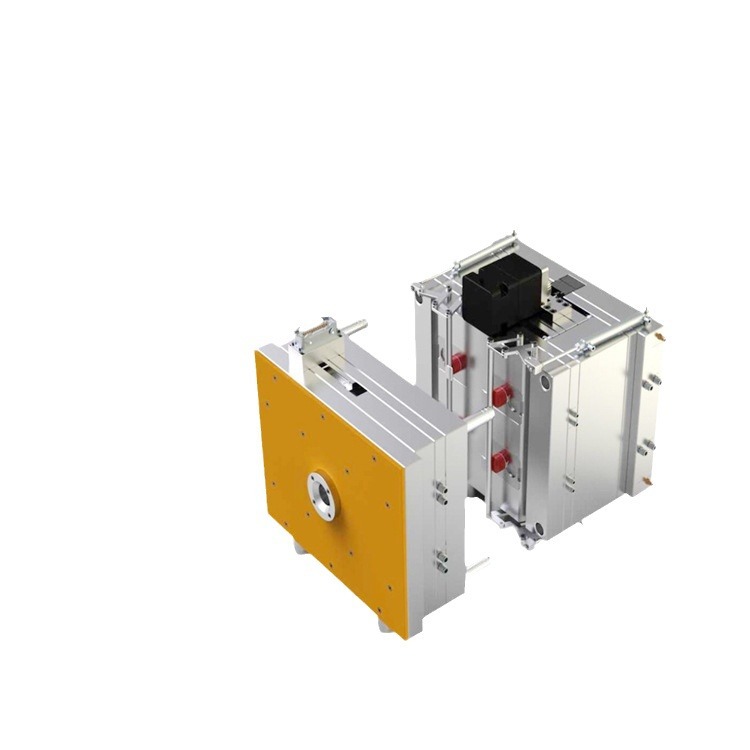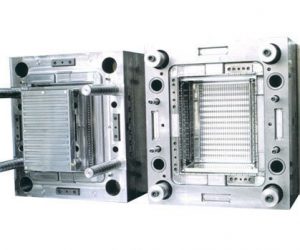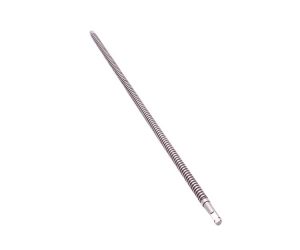Dive into the fascinating world of plastic mold manufacturing, where precision, innovation, and advanced technology come together to create products that shape our modern lives.
Introduction to Plastic Mold Manufacturing
The Evolution of Plastic Molds
The plastic mold manufacturing industry has transformed dramatically over the years, evolving from simple beginnings to today's high-precision processes. This journey began with the early days of the industrial revolution and has seen numerous groundbreaking advancements. From the first rudimentary molds to the sophisticated designs we see today, this progression has been crucial for the rise of modern manufacturing.
Significance of Molds in Global Industry
Plastic molds are the unsung heroes behind countless everyday products. These precisely engineered tools enable mass production of everything from consumer goods and medical devices to automotive components. They represent the pinnacle of human ingenuity and technical expertise, driving efficiency and quality in various industries.
Preview of Industry Trends and Challenges
As the plastic mold manufacturing industry continues to evolve, it faces a dynamic landscape filled with emerging trends and challenges. The increasing demand for sustainable materials and the integration of advanced technologies like automation and Industry 4.0 are reshaping the field. Additionally, addressing skilled labor shortages, navigating complex regulations, and meeting diverse industry requirements necessitate agility, foresight, and a commitment to continuous improvement from mold manufacturers.
The Art of Mold Design
Design Fundamentals and Considerations
At the core of plastic mold manufacturing is the intricate art of mold design. Designers must balance technical expertise with creative vision, considering factors like material selection, part geometry, ergonomic principles, and production efficiency. By mastering these fundamentals, manufacturers can produce molds that not only meet functional requirements but also exceed client expectations in quality, performance, and cost-effectiveness.
Role of CAD/CAM in Mold Development
Computer-Aided Design (CAD) and Computer-Aided Manufacturing (CAM) have revolutionized mold development. These digital tools allow designers to create virtual models, simulate manufacturing processes, and optimize mold components before any physical prototype is made. This early identification of potential issues reduces development time and costs while ensuring high-quality final products. The seamless integration of CAD/CAM systems is a hallmark of modern plastic mold manufacturing, driving innovation and enhancing precision and efficiency.
Design Optimization for Manufacturability
Optimizing mold design for manufacturability is critical as it impacts efficiency, cost-effectiveness, and product quality. Designers must consider factors like material flow, part geometry, and process parameters to ensure precise and consistent production. A data-driven approach to design optimization minimizes waste, reduces cycle times, and delivers exceptional results that surpass client expectations. This focus on manufacturability enhances mold performance and strengthens the competitive edge of the plastic mold industry.
Materials and Their Importance in Mold Making
Selection of Plastics for Molds
Choosing the right plastic materials is crucial in mold manufacturing. The materials you pick directly affect how well the final product performs, how long it lasts, and its cost. Mold makers need to carefully consider various factors like mechanical properties, thermal stability, chemical resistance, and how easy it is to work with the material. Common choices include polypropylene and polyethylene, but increasingly, engineered plastics like nylon and polycarbonate are becoming popular. Picking the right material ensures that your mold can handle the demands of the manufacturing environment and consistently produce high-quality parts. Staying updated on the latest advancements in plastic materials allows mold manufacturers to continually improve their products and meet changing customer needs.
Properties of Mold Steels and Other Materials
Aside from plastics, the choice of mold steel and other specialized materials is just as important. Mold makers need a deep understanding of these materials’ physical, mechanical, and thermal properties to ensure they create durable, high-performance molds. Tool steels are known for their hardness and wear resistance, while advanced alloys offer excellent thermal conductivity and corrosion resistance. Each material's characteristics play a significant role in the mold's performance and lifespan. By carefully selecting these materials, mold manufacturers can make molds that stand up to tough production conditions, providing consistent and reliable results while minimizing the need for costly repairs or replacements.
Innovative Materials for Specialized Applications
As the plastic mold manufacturing industry progresses, mold makers are always on the lookout for new materials and composites to meet specialized needs. For example, lightweight yet strong materials are being developed for the aerospace and automotive sectors, while biocompatible, sterilizable materials are essential for medical device manufacturing. Being at the forefront of material science research allows mold manufacturers to offer cutting-edge solutions that push the boundaries of what’s possible in plastic products.
Advanced Manufacturing Technologies
Computer Numerical Control (CNC) Machining
CNC machining is a cornerstone of modern plastic mold manufacturing. These computer-controlled tools have revolutionized mold fabrication, enabling the creation of complex shapes and exceptional surface finishes with unmatched precision and efficiency. By integrating the latest CNC technologies, such as multi-axis machining centers and high-speed spindles, mold makers can achieve even greater accuracy and reduce production timelines and waste.
Electrical Discharge Machining (EDM)
EDM has become an essential tool in plastic mold manufacturing. This technology uses controlled electrical discharges to erode material, allowing mold makers to create intricate features and details that would be difficult or impossible with traditional methods. Mastering EDM helps mold manufacturers enhance their products' performance and functionality, catering to a wide range of industries.
Laser Texturing and Etching Techniques
The industry has also embraced laser technology for various specialized applications. Laser texturing and etching allow mold makers to create detailed surface patterns, unique textures, and precise markings on mold components. These advanced laser processes help enhance the aesthetic appeal and functional characteristics of the final plastic products, making it easier for mold manufacturers to differentiate their offerings and meet market demands.
Molding Processes: Methods and Considerations
Injection Molding: The Workhorse of Production
Injection molding is the backbone of the plastic mold manufacturing industry. It involves injecting molten plastic into a precisely engineered mold cavity, where it cools and solidifies to take the desired shape. Mold makers continuously refine their expertise in injection molding to ensure consistent part quality, increased production efficiency, and reduced manufacturing costs. As demand for plastic products grows, this process will remain central to the industry's success.
Compression and Transfer Molding
While injection molding is widely used, compression and transfer molding are also important techniques. These methods offer unique benefits in terms of material compatibility, part complexity, and production efficiency. Mold makers skilled in these specialized processes can cater to a broader range of client needs, enhancing their capabilities and solidifying their position as trusted partners in the manufacturing ecosystem.
Efficiency and Cost Management in Production
In the competitive world of plastic mold manufacturing, optimizing production efficiency and managing costs are key to success. Mold makers have developed a deep understanding of factors that drive productivity and profitability, from material selection and mold design to advanced manufacturing technologies and data-driven process control. By continuously refining workflows, identifying areas for improvement, and implementing lean manufacturing principles, mold manufacturers can deliver high-quality products at competitive prices, positioning themselves as valuable partners across diverse industries.
Ensuring Quality and Performance in Mold Manufacturing
For mold manufacturers, ensuring the quality and performance of plastic molds is crucial. The integrity of these tools directly affects the success of the final product. Rigorous testing and calibration are essential to identify and fix any issues before production begins. This involves checking dimensions, surface finishes, durability, and thermal stability. By investing in advanced equipment and implementing strong quality control, manufacturers can consistently meet or exceed client expectations.
Quality Assurance Standards and Certifications
In the highly regulated world of plastic mold manufacturing, sticking to quality assurance standards and industry certifications is vital. Mold makers show their commitment to excellence by getting various accreditations, such as ISO 9001 for quality management and ISO 14001 for environmental management. These certifications prove their dedication to high-quality production and their ability to follow complex regulations, delivering products that meet strict safety and performance requirements. By continually improving their quality practices and pursuing industry-recognized certifications, mold makers build trust, stay competitive, and become trusted partners globally.
Troubleshooting Common Mold Defects
Even the best-designed and manufactured plastic molds can sometimes have issues during production. Mold makers have become experts at identifying and fixing common problems like warping, sink marks, flash, and short shots. These defects can significantly impact the final product's quality and performance. Using technical expertise, data analytics, and a solid knowledge base, manufacturers quickly diagnose and solve these issues, minimizing downtime, reducing waste, and ensuring consistent delivery of high-quality parts.
Sustainability in Plastic Mold Manufacturing
As global focus on sustainability grows, the plastic mold manufacturing industry is adopting eco-friendly practices to reduce its environmental impact. Manufacturers are using energy-efficient equipment, renewable energy sources, comprehensive waste management programs, and lean manufacturing principles. By innovating and optimizing processes, they lead the way to a more sustainable future, showing their commitment to environmental stewardship.
Recycling and Lifecycle Management
Understanding the importance of a circular economy, the industry emphasizes recycling and lifecycle management. Innovative strategies minimize waste, reuse production scrap, and extend mold life through maintenance and refurbishment. This holistic approach reduces the environmental footprint and enhances cost-effectiveness and resource efficiency, positioning manufacturers as leaders in sustainable manufacturing.
Innovations in Biodegradable Plastics Molding
With the global challenge of plastic waste, the industry focuses on biodegradable plastics molding innovations. Collaborating with material scientists, mold makers develop specialized molds for high-performance plastic parts from renewable, compostable materials. These advancements help create a more sustainable future where plastic products can be responsibly disposed of or reintegrated into nature.
The Mold Maker's Toolbox: Equipment and Software
Modern mold shops are equipped with innovative tools and equipment essential for creating industrial components. From CNC machining centers and electrical discharge machines to specialized metrology instruments and cutting tools, these advanced technologies enable manufacturers to meet evolving client demands. Investing in the latest tools pushes the boundaries of precision, efficiency, and quality.
Software Solutions for Mold Design and Analysis
Advanced software solutions enhance design, development, and analysis in the plastic mold manufacturing industry. Computer-Aided Design (CAD) and Computer-Aided Manufacturing (CAM) tools allow virtual modeling, simulation, and optimization. Specialized software for finite element analysis (FEA), computational fluid dynamics (CFD), and process simulation helps manufacturers make informed decisions, identify potential issues early, and deliver high-performing molds.
Integration of Smart Technology in Manufacturing
The industry also embraces smart manufacturing technologies to improve efficiency, quality, and visibility. Internet of Things (IoT) sensors, predictive maintenance algorithms, data analytics, and real-time process monitoring enhance operations. Leveraging these technologies helps manufacturers stay ahead in the competitive market.


